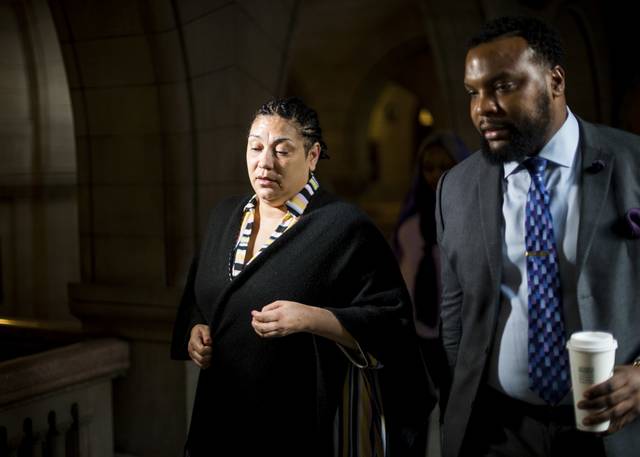Michelle Kenney’s call for prosecutors to paint a more personal, positive picture of her son Antwon Rose II in their case against the police officer who shot him is understandable, but not a normal strategy in such cases, a legal expert said.
Kenney made the request in a letter to Chief Trial Deputy District Attorney Daniel Fitzsimmons and Assistant District Attorney Jonathan Fodi.
“I do not read that letter at all as a rift between the Rose family and the DA’s office,” said Bruce Antkowiak, a former federal prosecutor and law professor at Saint Vincent College.
“I think what this suggests is the obvious and understandable emotions of a mother who is watching a trial regarding the death of her son and the fact of the defense trying to argue that in the moment that the police officer shot, the officer reasonably believed that he needed to use deadly force in that context,” Antkowiak said.
The Rose family’s civil attorney S. Lee Merritt publicly released Kenney’s letter Wednesday. In it, Kenney said she felt it was important for prosecutors to let the jury “hear about who my son was.”
“They deserve to know the real him. The defense has tried to make him out to be ‘just another thug,’ but please let the jury know who he really was,” Kenney wrote.
Antkowiak said in a criminal trial like the Rosfeld case, prosecutors don’t normally get into the general dispositions of people. Classic self-defense cases are an exception, he said.
“The prosecution is not generally going to be in a position to affirmatively put on character witnesses about the individuals,” Antkowiak said. “In the event that the defense opens the question about ‘this guy (Rose) was involved in all these unsavory activities, this was just an extension of our allegation that he was involved in a shooting and all this other stuff,’ the door can be opened to the prosecution to bring in affirmative evidence of the good character of the victim.
University of Pittsburgh law professor David Harris agreed that the letter does not represent bad feelings between Kenney and the prosecution.
“I hear the voice of a mother deeply wounded by the loss of her loving son, who is sitting and listening to the defense make him out to be something she does not believe he was, and she is frustrated and angered by that,” Harris said. “She wants to hear the prosecution paint the picture of the young man and son that she knew — for the jury to hear that he was not a thug but a good person with a real life that has been taken.”
Antkowiak says he thinks prosecutors are prepared to argue that nothing Rose did, other than running from the June 19 traffic stop, gave police a reasonable belief deadly force was needed.
“Obviously, Antwon Rose’s mother is reaching out to the DA and saying look, ‘If the jury knew my son, and knew him as I knew him, they would know that he never presented a threat to anyone and he would have never presented a threat in that context or any other,” he said.
“And if the defense opens that door, the prosecution can then come back and say, ‘The guy had a reputation for being a peaceful person. The suggestion that he was the initial aggressor is simply not true.’”








